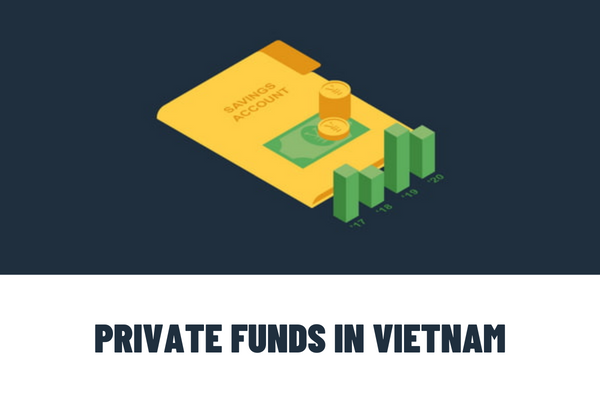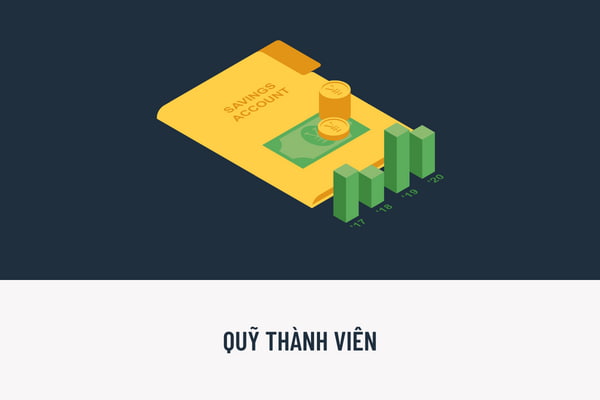What conditions must be met to establish private funds in Vietnam? What types of assets are private funds allowed to invest in?
What conditions must be met to establish private funds in Vietnam?
Pursuant to the provisions of Clause 41, Article 4 of the 2019 Law on Securities in Vietnam on a private fund as follows:
Definitions
…
41. A private fund means a securities investment fund that has 02 - 99 capital contributors who are all professional investors.
Thus, a private fund means a securities investment fund that has 02 - 99 capital contributors who are all professional investors.
According to Article 113 of the 2019 Law on Securities in Vietnam on the establishment of private funds as follows:
Establishment of private funds
1. The private fund shall be established by members by contributing capital under a capital contribution contract.
2. The establishment of private fund is subject to fulfillment of the following conditions:
a) The contributed capital is not smaller than 50 billion VND;
b) There are 02 – 99 capital contributors who are all professional securities investors;
c) The fund is managed by a fund management company;
d) The private fund’s assets are deposited at 01 depository bank that is independent from the fund management company.
In addition to the above conditions, the private fund must ensure the portfolio and investment activities specified in Article 5 of Circular No. 98/2020/TT-BTC, specifically:
- The fund's investment portfolio must be conformable with its investment objectives and policies specified in the fund's charter and prospectus.
- The fund management company shall only make deposits and invest in money market instruments as prescribed in Points a, b Clause 2 of this Article at the credit institutions approved by the fund’s representative board.
- Private funds are allowed to contribute capital to establish joint-stock companies or limited liability companies in accordance with regulations of the Law on enterprises. If permitted in the fund’s charter and approved in writing by the General Meeting of Investors, the private fund may invest in eligible real estate as prescribed in the Law on real estate business.
- When managing a private fund, the fund management company shall:
+ Not use the fund’s capital and assets to make investments in that fund;
+ Not use the fund’s capital and assets to provide loans or loan guarantees; not underwrite the offering of securities;
+ Invest in public fund certificates and shares of public securities investment companies managed by other fund management companies, but ensure the following limits:
++ Not invest in more than 10% of total outstanding fund certificates of a public fund or total outstanding shares of a public securities investment company;
++ Not invest more than 20% of total value of its assets in fund certificates of a public fund or shares of a public securities investment company;
++ Not invest more than 30% of total value of its assets in public fund certificates or shares of public securities investment companies.
+ If permitted in the fund’s charter, the fund is allowed to get mortgage loans, overdraft facility or loans in other form from the custodian bank, borrow money to purchase securities (margin trading) according to the following principles:
++ Borrowing of assets must be conformable with regulations of law;
++ Borrowing limit shall be decided by the General Meeting of Investors, provided that total debts and amounts payable of the fund shall not exceed 30% of total value of the fund's assets at any time;
++ Organizational structure and operations of the credit department of the custodian bank must be separated from the fund’s depository department; credit activities are independent from depository activities and fall beyond the scope of the depository contract;
++ The fund management company shall provide information about rights and interests of the custodian bank and potential conflict of interest for the General Meeting of Investors for consideration.
- The fund management company and organizations contributing capital to establish the private fund are not allowed to use means of mass media for advertising or raising capital.
- Private funds may make indirect outward investments according to Clause 9 Article 24 of Circular No. 98/2020/TT-BTC.

What conditions must be met to establish private funds in Vietnam? What types of assets are private funds allowed to invest in?
What types of assets are private funds allowed to invest in?
Pursuant to the provisions of Clause 2, Article 5 of Circular No. 98/2020/TT-BTC:
- The fund may invest in the following assets:
+ Deposits at commercial banks as prescribed by the Law on banking;
+ Money market instruments, including financial instruments and negotiable instruments as prescribed by law;
+ Government’s debt instruments, Government-backed bonds and municipal bonds;
+ Listed shares, shares registered for trading, bonds listed on SE, and public fund certificates;
+ Unlisted shares of issuers that are operating under the law of Vietnam; shares of joint-stock companies or stakes of limited liability companies;
+ Rights arising in connection with securities held by the fund;
+ Other securities and assets as prescribed by law.
How does the private fund distribute profits?
According to the provisions of Article 7 of Circular No. 98/2020/TT-BTC on the distribution of profits of private funds as follows:
- The fund shall distribute profit whether in cash or by fund certificates. At least 15 days before distribution of profit, the fund management company shall send notification in an appropriate manner to registered contact addresses or email addresses of investors. Such a notification shall contain the primary information in the form in Appendix VII enclosed with Circular No. 98/2020/TT-BTC. The fund’s distribution of profits shall comply with the rules specified in Clause 2, Article 7 of Circular No. 98/2020/TT-BTC.
LawNet
